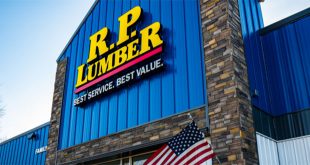Is e-commerce a threat that will truly result in the demise of traditional brick-and-mortar stores?
Not according to a recent article from Forbes, which highlights five main factors that show why traditional retail spaces are still significant to consumers and are vital cornerstones of the overall economy.
Traditional retail does face challenges, but these obstacles are due to a complicated range of factors, not just e-commerce, according to Forbes.
The article suggests that an outdated approach to attracting customers and a shifting consumer preference for more “experiential purchases” are the reasons behind recent retail chain bankruptcies and store closings.
Forbes highlights the following five symptoms of a retail environment that is still a good one for brick and mortar:
- Nine of the top 10 U.S. retailers are brick-and-mortar stores. The National Retail Federation recently compiled its list of the top 100 retailers according to sales. The only e-commerce company it includes in the top 10 is Amazon. The company grossed $77 billion in 2016, compared to Wal-Mart’s chart-topping $362 billion haul.
- Clicks do not equal conversions. Stores are still more profitable than e-commerce companies, the Forbes article says. The percentage of store visitors who buy items is much higher than their e-commerce competitors, which gives them a distinct advantage. Additionally, e-commerce profits are often eroded by shipping and handling as well as return costs.
- E-Commerce envies brick-and-bortar stores. Amazon’s recent purchase of Whole Foods shows just how desirable brick-and-mortar locations are to online giants. With the purchase, Amazon increased its physical footprint from just three stores to 460.
- Younger generations still value physical stores. Millennials and members of Generation Z may love spending their free time online, but when it comes to spending their money, they’re opting for brick-and-mortar retail. Global real estate group CBRE recent surveyed millennials across the world and learned their shopping habits often mirror past generations, with 70 percent preferring traditional retail stores.
- Traditional retailers have buying power. Brick-and-mortar stores are buying an impressive collection of online-only companies, a sign of resilience against e-commerce. Recently, Hudson’s Bay Company, Nordstrom, Bed, Bath & Beyond and Wal-Mart have all acquired online-only companies to bolster their product offerings.
 Hardware Retailing The Industry's Source for Insights and Information
Hardware Retailing The Industry's Source for Insights and Information








